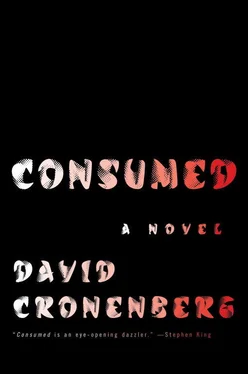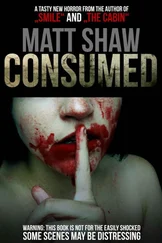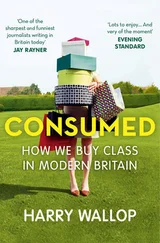“What was it about the French language that scared you?”
“I learned my French in Quebec, while I was at McGill University in Montreal. I was passionate to learn the Quebec language, to acquire that strange, wonderful, ancient accent that got trapped in Quebec after the French Revolution. But McGill is an English-language university, and I learned my Quebec in the streets. Actually, worse than the streets, because I spent my summers in small towns where they spoke hard-core Quebec worse than anywhere in Montreal. I wanted my French to be rough, and it was.”
“Why did you want that? I wonder.”
Chase giggled and then, to Nathan’s astonishment, dug into the green leather pouch tucked in beside her, pulled out a high-tech nail clipper, and began to trim her fingernails. The clipper had a matte titanium finish, a dimpled and contoured lever, and a pivoting plastic clippings catcher that reminded him of an old steam locomotive’s cowcatcher apron. He was fairly certain it was the same clipper he had seen her using in her bedroom, though he had never gotten a clear shot of it. She worked the clipper at eye level and glanced mischievously over it. “Youthful rebellion expressed through the politics of language, mostly directed at my father. And then he twisted it back on me by suggesting that I use my hard-earned French to study at the Sorbonne. He used to joke that the Quebec language was not really French at all, and that I could prove he was wrong by speaking it in Paris. I would be studying with the most sophisticated writers of French you could imagine, and I was afraid. I would be Anglo Jewish from Toronto speaking bad street Quebec.”
“What would you be studying? Who were those writers?”
“The Philosophy of Consumerism. The kids called it PhiloCon, which, I think I recall, can sound a bit naughty in French if you want it to. Do you speak French?”
“Not really. I can read a bit. If we took a second language it was usually Spanish. And those writers who were supposed to teach your PhiloCon course?”
“Aristide and Célestine Arosteguy. You’ve heard of them? A married couple. They were kind of controversial in the academic world. Ow!” Chase flapped her hand and then sucked a finger. “That hurt.”
“What happened?”
“Nipped a bit of finger. I suppose it’ll be trapped in this little clipping-catcher thing. See? You just flip it down when you want to toss the nail clippings. It stops it from popping the clippings all over the place, the way the old clippers do. It’s a Sally Hansen. Stainless steel. Oh, there’s some blood…” There was some blood, winding its way down her ring finger. She smeared it against her middle finger then sucked them both, watching him.
It had to be an elaborate construct by Chase, if not by Chase and Roiphe. They must have researched him on the net, somehow linking him with Naomi and her Arosteguy project. Naomi could be so cavalier about the net when she was in that mood, even though she knew all about lawsuits against Tweeters and mob actions against Facebookers. And the clippers, the blood… it was a brilliant miniature piece of theater and almost unthinkable that it was really an unconscious acknowledgment of a psychopathological state. But did he have a role in this drama, or was he just a recruited audience?
“Did you go, then? Did you do it? Study with the Arosteguys at the Sorbonne?”
“Oh, yes, I did. I spent two years there with them. I took a lot of other courses as well, but mainly it was them. The Arosteguys.”
“And your French? Were you humiliated? Can you speak Parisian French now?”
Chase let her hands drop into her lap with an expressive exhalation, and then, in counterpoint, a giggle. “I can’t speak any French now. Either brand of. None.”
“Really? How come?”
“I guess I just forgot it all. It’s been a whole year since Paris.” Chase stood up, brushed at her dress, then sank gracefully to the floor and began picking at the carpet as though grooming it for lice. “I dropped some nail bits when I showed you how the catcher works. My father notices those things. I call him Laser Eye. He doesn’t miss a trick. Gotta watch it with Dad.” By the end of her little speech she was doing a good comic impression of Roiphe, verbally and physically, mimicking exactly his loose-limbed unsteadiness and affected vulgarity. She crawled to her feet using the coffee table for support and stood over him, cradling the invisible clippings in her hand and bouncing them gently up and down as if testing their weight.
“Did you get them all?” said Nathan. He could think of no other strategy than to play the Roiphe game as it unfolded.
“I think so,” said Chase, with exaggerated musicality. “I do think so.”
“Chase, have you been following the story about the Arosteguys?” “How would I do that?”
“Well, probably on the internet.”
“I’ve found the internet to be a very dangerous place. Especially for children. I don’t go there anymore.”
“But you’re not a child.”
She laughed. “On the internet, nobody knows you’re an adult. Hey, have you heard of 3D printing?”
“I have, yes. Why?”
“Have you heard of 3D philosophical tissue printing?”
“No, that I haven’t heard of.”
“It’s not even on the internet. Know why?”
“Why?”
She was still in jaunty Dr. Roiphe street mode. “Because some friends and me invented it, and we don’t talk. Someday I’ll maybe let you play with it.” She turned away from him and disappeared up the stairs.
NAOMI SAT ON THE COUCH, Air opened on her lap, flickering Nagra and solemn camera (with soy-sauce-smeared LCD) restored to the tabletop, professionalism re-established. Arosteguy squatted on the other side of the table blotting up the spilled sake with a spice-plant-themed kitchen towel. “I need to tell what happened when Célestine was diagnosed. It destroyed the present tense for us, because it destroyed the future. It poisoned us. And it secretly destroyed our relationship with everyone we knew. Every laugh was a lie, every smile was a betrayal. Because we decided not to tell them. We knew it would destroy their present tense with us as well, and we couldn’t bear it. It drew us closer together, but in a melancholy, sick way, and it compressed our existing isolation almost to the point of madness.”
He balled up the wet towel, tossed it in the general direction of the kitchen, and segued into scraping up with a bamboo-handled spatula the remains of the meal he had scattered, carefully arranging the scraps of noodle, shrimp, seaweed, and tofu in a perforated red plastic shopping basket lined with newspaper. “We couldn’t take photos after the diagnosis. Every photo displayed the lie. Every photo was already a memento of a life that was gone, a photograph of death. Compared with those innocent early family photos, the pictures I finally took of Célestine… afterwards… they were honest, they contained no betrayals, no lies, no deceit. So they were horrible, but they were pure.”
“Ari, what doctor was it who did the diagnosing? You know that some people say there never was a diagnosis. That you invented it to justify the murder of your wife…”
He examined a shrimp on the blade of the spatula, then plucked it off and popped it into his mouth. “Who said this exactly? Dr. Trinh?”
“Dr. Trinh among others.”
“Others on the internet? The Twitterverse? There were blogs established to promote exactly that view.”
“Yes.”
“The internet is now a forum for public prosecution. But you ask me who diagnosed Célestine,” said Arosteguy. “The doctor who told her she had acute lymphocytic leukemia was Anatole Grünberg, a Nobel laureate for his work in hematological oncology. Who would doubt him?” A reflective pause. “They had been lovers when he was still in medical school at Paris Descartes, of course. They would meet, on and off. She liked to connect our work, so abstract, so interior, to the work of the human body. That is how she grounded our writing. Politics, the normal French mode of grounding, she found even more abstract and disconnected than philosophy. It never attracted her.”
Читать дальше
Конец ознакомительного отрывка
Купить книгу







![David Jagusson - Fesselspiele mit Meister David [Hardcore BDSM]](/books/486693/david-jagusson-fesselspiele-mit-meister-david-har-thumb.webp)




